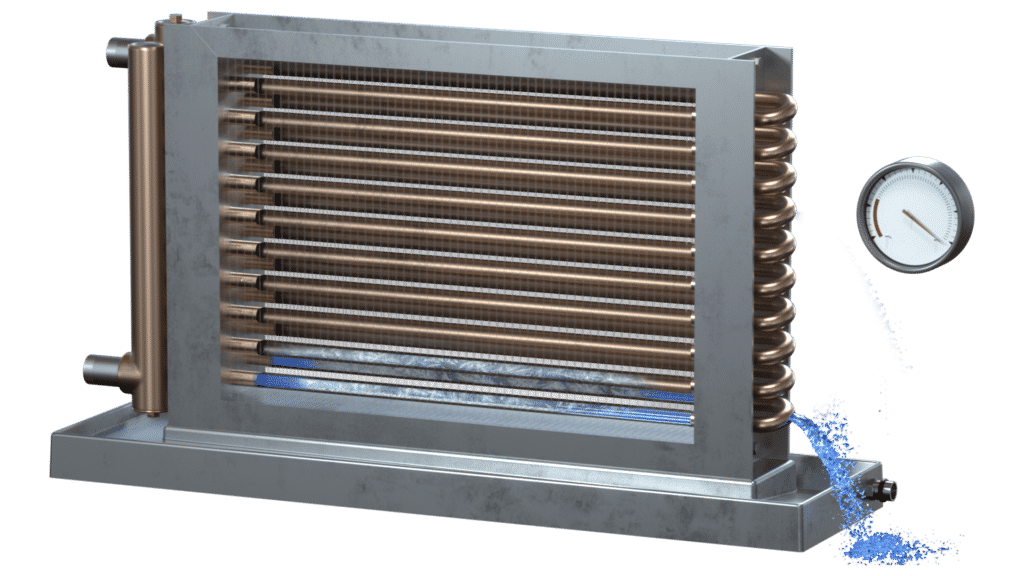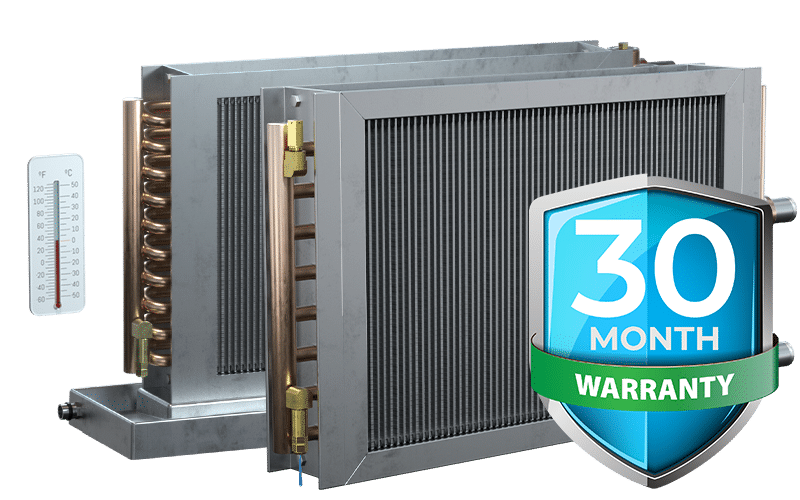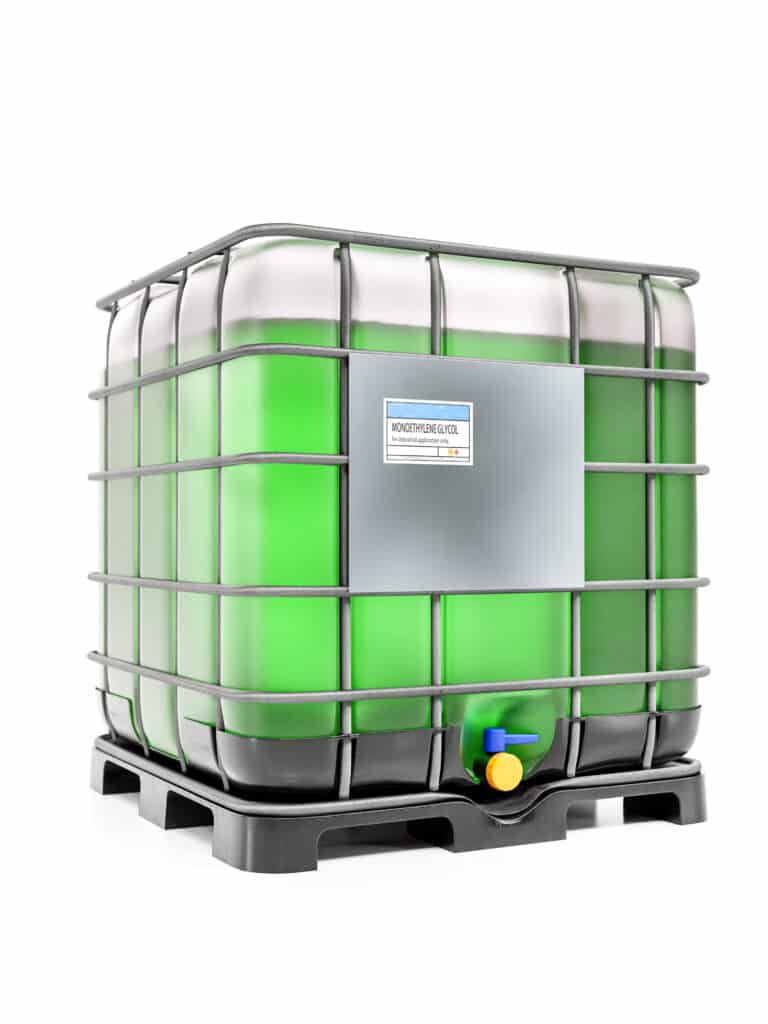The operations of hospitals and other healthcare facilities depend on the availability of uninterrupted heating and cooling, as even a short disruption can have serious consequences for patient care. Unfortunately, frozen HVAC coils are a real risk for such applications due to their high use of outdoor air and exposure to low winter temperatures. In this whitepaper, we discuss the risks posed by frozen HVAC coils and how utilizing Freeze Block™ technology is designed to prevent coil damage from freezing while delivering other benefits such as energy savings and improved functionality.
The Risks of Frozen Coils in Healthcare Facilities
Frozen HVAC coils can cause a variety of issues, leading to considerable downtime, loss of heating or cooling, flooding from ruptured coils, damage to equipment, and potential mold growth and bacteria breeding. These disruptions can lead to delays in patient care, cancellations of surgeries, and even medical errors that can compromise patient safety.
How HVAC Coils Freeze
HVAC coils may freeze when they are exposed to freezing air temperatures. Hydronic coils in an HVAC system transfer thermal energy from the heat transfer medium (typically water) inside of the coil tubes to the airstream. When coils are exposed to freezing air, the fluid inside of the coil lowers in temperature as heat transfer occurs. If the air is cold enough over a specific section of the coil, it can freeze the fluid inside.
As water is turned to ice, its volume increases. Every 100 lbs. of water will fill a volume of 12 gallons (density = 62.4 lb/ ft3), and every 100lbs of ice will fill a volume of 13.07 gallons (density = 57.4 lb/ft3). That is a difference of over 8% volume. The ice’s increased volume does not have space to expand, and therefore creates pressure on the coil. The resultant pressure is strong enough to rupture the coil. 
The airstream entering a coil is typically not isothermal (same temperature throughout), and often stratification of the air can cause specific portions of the coil to freeze. Stratification is caused by the extreme difference in temperature (and therefore air densities) between the outdoor air and the return air. The amount of stratification that occurs is primarily a function of the mixing box design. The entire airstream does not need to be at 32°F to freeze a coil. If a select portion of a coil is consistently exposed to low temperatures, that portion of the coil can freeze and burst while the remainder of the coil is exposed to standard mixed air temperatures.
Preventive Measures for Frozen Coils
There are several traditional methods used to prevent frozen HVAC coils in healthcare facilities. These methods include utilizing glycol, freeze stats, and draining coils when not in use. However, each of these methods has its challenges.
Glycol
Glycol is added to the HVAC system water to lower the freezing point of the fluid. However, this method has some significant drawbacks.
- Glycol is expensive, and its application adds considerable complexity to the HVAC system, including additional components such as pumps, tanks, and control systems.
- Glycol can corrode piping and equipment, leading to leaks and equipment failure.
- Energy consumption is increased and efficiency is decreased.
- Environmental risks are significant as Glycol is toxic.
Due to these negative effects, there has been a growing interest in finding alternative solutions to using glycol in HVAC systems.
Freeze Stats
Freeze stats are devices that monitor the temperature of the HVAC coil and shut down the system if the temperature drops too low. While a useful tool, this method does not address the root cause of the issue, and can lead to unnecessary downtime if the system shuts down unnecessarily. Freeze stats are also susceptible to human error, as maintenance teams often turn them off or change setpoints in order to avoid “nuisance alarms.” This can lead to frozen coils and system downtime if the temperature drops too low.
Draining Coils
Draining coils when not in use is another approach taken to prevent frozen HVAC coils. This involves draining the chilled water coil during the fall and winter season. This method requires considerable labor and disrupts the system’s operation. Additionally, if the temperature drops unexpectedly, there may not be enough time to drain the coil before freezing occurs.
Freeze Block™ Technology

Freeze Block™ technology is an innovative solution for healthcare facilities looking to protect their HVAC coils from freeze damage, even in extreme temperatures. By eliminating the risk of ruptured coils, you can reduce maintenance and repair costs, as well as downtime.
Freeze Block™ coils are designed with a pressure and temperature relief valve mated to an expansion relief header. This dual-sensing valve prevents rupture at both the return bends as well as the fin pack. When a freezing event is detected, the valve displaces a controlled volume of fluid to drain to allow the coil to freeze without rupture. Once thawed, the Freeze Block coil goes back into normal operation.
For added protection, Smart Coil, (a valve deployment detection technology) can be tied into your building automation system to notify you when a Freeze Block valve deploys. This allows for quick reaction and proactive maintenance to prevent future frozen coil failures.
Freeze Block can eliminate the need for glycol in some systems, thereby reducing energy costs and providing cost savings to healthcare facilities.
Freeze Block coils will help reduce maintenance and repair costs, as well as downtime associated with frozen HVAC coils. The Freeze Block valve enables a fast recovery when temperatures normalize. The system returns to normal operation quickly. This reduces disruption to patient care and operations, leading to improved efficiencies for healthcare facilities.
Case Studies
Frozen Coil Causes Major Flooding Damage at Tennessee Hospital
A large hospital in Tennessee experienced catastrophic damage when the HVAC coil above an operating suite froze and burst. The hospital was unable to prevent the coil from freezing, which resulted in the coil bursting and flooding an entire operating suite and MRI. The incident caused an estimated nine million dollars in damage due to the flooding damage and disruption of patient care.
Lancaster Rehab Helps Prevents Damage with Freeze Block™ Technology
At Penn Medicine’s Lancaster Rehabilitation Hospital, a frozen coil incident threatened to cause significant damage and disruption. During a recent arctic blast, the hospital was prepared for freezing temperatures by having Freeze Block™ coils installed in their air handling units.
When the temperature dropped below freezing, the Freeze Block valves deployed, allowing controlled amounts of fluid to drain so that the coil could freeze without rupturing. “They [Lancaster Rehab Hospital] called about a coil rupture on Unit #1. When we got there we found out the Freeze Block opened and saved this coil. First experience with this, and I am thrilled with the results. The freeze stat failed to operate.” said Scott Lankford, Spangler & Boyer Mechanical / Lancaster Rehab Hospital account representative. The hospital was able to keep the freeze event under control and prevent significant damage from occurring.
Conclusion
Frozen HVAC coils can cause serious disruption to operations and patient care in healthcare facilities if left unchecked. Traditional preventive methods often fail to provide significant resistance to freezing temperatures, leaving healthcare providers vulnerable to costly repairs and extended periods of downtime. Freeze Block™ technology provides an innovative solution that prevents coil damage from freezing and allows healthcare facilities to continue uninterrupted operation all year long.


